Study in Switzerland

Overview
Switzerland is well known for having top-notch educational institutions, particularly in business, engineering, and hospitality. It offers a genuinely global academic experience with its robust economy, bilingual setting, and highly regarded universities. Students benefit from outstanding research possibilities, breathtaking natural scenery, and an exceptional standard of living. Switzerland offers the ideal blend of innovation and tradition.
Why Study in Canada?
World-class education
Canada offers globally recognized degrees and diplomas, with top-ranking universities known for academic excellence and research opportunities.
Safe & welcoming
Canada is known for its low crime rate and inclusive society, creating a safe and friendly environment for international students.
Multicultural society
Canada embraces diversity, with people from all over the world, allowing students to experience various cultures and feel at home.
Research opportunities
Canadian universities emphasize research and innovation, offering students access to cutting-edge facilities and projects across various fields.
Work & PR options
Compared to other popular study destinations, Canada offers quality education at relatively lower tuition fees, making it a cost-effective choice.
Affordable tuition
International students can work part-time during studies and full-time after graduation, with clear pathways to permanent residency through programs like Express Entry.
High living standards
Canada consistently ranks high in quality of life, offering excellent healthcare, infrastructure, and a clean environment for a comfortable student life.
Affordable tuition
From mountains and lakes to forests and coastlines, Canada’s stunning natural beauty offers students endless opportunities for travel and outdoor adventures.
Why Study in Switzerland?
Affordable education with publicly funded universities
Cutting-edge research opportunities and innovation
Diverse range of academic programs available
State-of-the-art campus infrastructure
Globally recognized academic excellence
QUALIFICATIONS OFFERED
- First Professional Degree
- Diploma
- Associate Degrees
- Applied Degrees
- Bachelor’s Degree
- Master’s Degree
- Doctorate
TEST REQUIREMENT
- TOEFL or IELTS scores as a proof of English proficiency. Depending upon the institution, the score requirements may vary between 80-100 for TOEFL and 6.0 – 7.0 bands in IELTS.
- For MBA admission a good score in GMAT is required.
EDUCATION COST
TUITION COST
- Diploma & Advanced Diploma Courses cost range from CAD$11,000 – CAD$13,000 per year depending on the course.*
- Bachelor’s Degrees cost range from CAD$13,000 – CAd$19,000 per year for most under-graduate degrees*
- Post-graduate Degrees cost ranges from CAD$12,000 and ranges up to CAD$22,000*
* Fees given are of informative nature may vary from university to university
TUITION COST
Approximately CAD 10000 for 1st year.
WORK RIGHTS & STAY BACK POST STUDY
TUITION COST
- Part time work right : Off campus 20 hours per week – 40 hours per week during vacation
- No limit for on campus work
- Upto 3 years stay back for ( 2 years study )or equal to the course duration if it is less than 2 years
INTAKE
- January
- May
- September
Universities
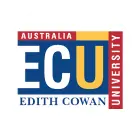
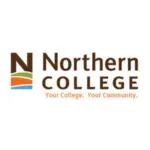
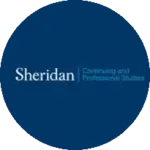

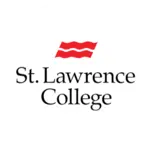
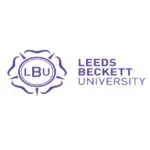





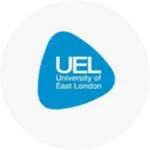



Switzerland is renowned for its top-notch educational system, which places a strong emphasis on practical training, outstanding research, and rigorous academics. The nation’s governmental and private institutions, many of which partner with international universities and companies, provide a broad range of undergraduate and graduate degrees. Major admissions typically take place in January, February, April, May, July, August, October & November, though this might vary by institution. Swiss degrees provide access to worldwide professional prospects and bilingual education.
Language prerequisites for studying in Switzerland vary according to the language of teaching, which can be German, French, Italian, or English, depending on the university and region. Many bachelor’s programs are taught in the native language, and students must demonstrate their competency by tests such as TestDaF, DELF/DALF, or CELI. University English-taught programs, particularly at the master’s level, typically require IELTS, TOEFL, or similar results. Some universities may also provide preparatory language classes or accept proof of prior English education in place of a formal test.
Understanding the Canadian Education System
Canada’s education system provides a varied selection of programs through universities, colleges, and technical institutes, catering to students with a variety of employment goals. An exceptional aspect of the Canadian educational system is its focus on experiential learning, which enables students to obtain practical experience through research partnerships, co-ops, and internships. Additionally, the nation offers overseas students the chance to work both during and after their studies, which lowers the cost of education and focuses on careers. With a reputation for competence, inclusivity, and a solid student support system, Canada remains a popular choice for people seeking a high-quality education and potential employment opportunities.
Canadian universities offer three main intakes for international students: January, May, and September.
Language Requirements
International students need to prove English competence on standardized tests such as the TOEFL or IELTS to study in Canada. Depending on the school, the necessary scores can vary, but generally speaking, they fall between 80 and 100 on the TOEFL and between 6.0 and 7.0 on the IELTS. A competitive GMAT score is frequently needed as part of the admissions process for MBA candidates. Institutions may have particular prerequisites, therefore, students must check the qualifying criteria of their preferred program before applying.
Do you have Questions ?
Find answers to common queries about our services, processes, and policies. If you need further assistance, feel free to reach out.
1. What are the major intakes for universities in Switzerland?
Major admissions typically take place in January, February, April, May, July, August, October & November, though this might vary by institution.
2. If I want to study in Switzerland, do I have to speak the local language?
The program determines this. Many bachelor’s degree programs are taught in German, French, or Italian, but there are many other programs taught in English, particularly at the master’s level.
3. Do international students have access to scholarships?
Yes, Swiss universities and the Swiss Government Excellence Scholarships provide financial support and scholarships to deserving students from different countries.
4. Is it costly for students to study in Switzerland?
While the cost of living is somewhat high, college costs are lower than in other Western countries. Budgeting and scholarships might assist you in managing your living expenses.
5. Can I work in Switzerland and still study?
Yes, overseas students can work up to 15 hours per week during the school year and full-time during the holidays if they have a valid residency visa.
6. What employment options are available in Switzerland after studying?
International students are eligible to apply for a six-month work-seeking visa once they graduate. If they find a job connected to their field of study, they can apply for a work permit.
